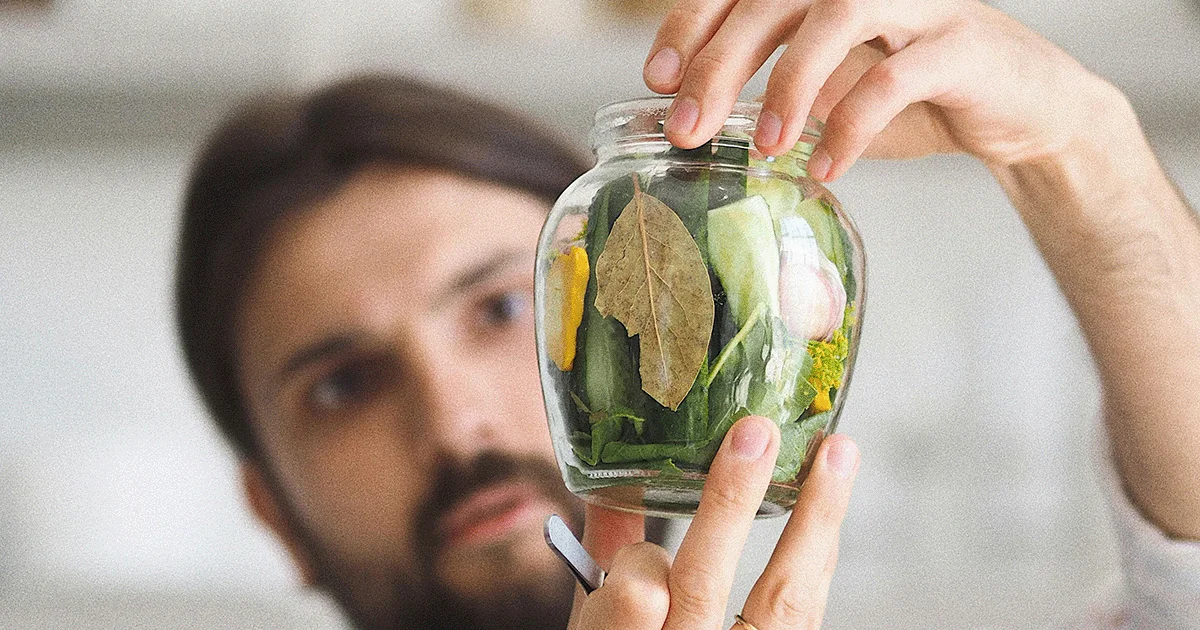Here's what we'll cover
Here's what we'll cover
For most of us, that added jolt we get after our first cup of coffee in the morning is reason enough to keep consuming caffeine. But did you know that caffeine is associated with benefits other than just waking you up after a late night?
Health benefits of caffeine
Research links caffeine to health improvements, but some of the benefits of caffeine are hard to disentangle from the health effects of other compounds found in common caffeine sources.
For example, you may have heard that coffee is good for you, same with tea, which also contains caffeine. But research has found that even decaffeinated coffee and tea seem to provide health benefits, so caffeine doesn’t always deserve credit for the positive effects associated with these drinks (van Dam, 2020).
That said, there’s good evidence that caffeine—even on its own—may provide numerous health benefits like:
1. Improving brain function
Caffeine is a psychoactive substance. That means it can change the activity of your brain and central nervous system in ways that influence how you think and feel (Temple, 2017).
Researchers have found that the psychoactive effects of caffeine can lead to several cognitive benefits. These include (Temple, 2017):
Increased alertness and sharpness
Increased wakefulness
Improved performance on memory tasks
Improved reaction time
Reduced fatigue and drowsiness (van Dam, 2020)
Improved vigilance during tedious tasks (van Dam, 2020)
There are a number of ways that caffeine may produce these cognitive benefits. But the primary way seems to be by blocking neurotransmitters (a.k.a., chemical messengers) from attaching to adenosine receptors in the brain. This blockage increases arousal and counteracts drowsiness (Fiani, 2021).
The cognitive benefits of caffeine tend to be more significant when you’re tired or sleep-deprived. Also, some research has found that 150 mg of caffeine—roughly the amount in 12 ounces of brewed coffee—is enough to produce these benefits (Temple, 2017).
It’s not clear that higher doses of caffeine lead to greater cognitive improvements. In some people, higher doses—anything above 200 mg in a sitting—may promote anxiety and other side effects such as jitteriness, restlessness, hyperactivity, and other unwanted symptoms (van Dam, 2020).
2. Lower risk for brain diseases
Some studies have found that caffeine may reduce your risk of Parkinson’s disease. It may also slow the progression of Parkinson’s among people who already have it.
Again, the benefits of caffeine may come down to its effect on adenosine receptors in the brain. By blocking the ability of some brain chemicals to attach to these receptors, caffeine seems to prevent some damaging types of neurotoxicity and inflammation, both of which may contribute to Parkinson’s disease (Hong, 2020).
A few studies have also found that caffeine may protect against age-related cognitive decline and diseases such as Alzheimer’s disease. While promising, more work is needed to establish if caffeine really does help (Londzin, 2021).
3. Pain relief
Caffeine seems to make some pain-relievers work better. For example, research has found that adding 100 mg of caffeine to the analgesic (painkiller) drug ibuprofen can bolster its efficacy (Förderreuther, 2020).
More work has found that adding similar amounts of caffeine to other painkillers can improve their effect on headaches, postpartum pain, and pain related to other conditions. Caffeine seems to help by interfering with the action of brain receptors involved in pain signaling or detection (Baratloo, 2016).
4. Improved liver health
Research has found that drinking coffee may lower your risk for liver damage, as well as liver diseases such as cirrhosis, fibrosis, and maybe even liver cancer. And there’s some evidence that the caffeine in coffee deserves credit for these protective effects.
Caffeine—again, by blocking the action of adenosine receptors in the brain and nervous system—may reduce the kind of liver-tissue remodeling that can lead to damage and disease. However, it’s also possible that non-caffeine compounds in coffee also contribute to improved liver health. For now, it’s not clear that caffeine alone can protect your liver (Dranoff, 2018).
5. Weight management
There’s evidence that people who consume caffeine daily may, over time, gain slightly less weight than people who don’t consume caffeine. How? Caffeine may speed up your metabolism in ways that raise your energy use throughout the day (van Dam, 2020).
There’s also some inconsistent research that caffeine may promote weight loss and reductions in body fat and BMI. However, some of these benefits have turned up in people who consume caffeine in the form of green tea. Green tea contains other compounds, such as catechins, that may better explain these weight and body-fat benefits (Tabrizi, 2019).
6. Athletic performance
Research shows that caffeine may improve finishing times among runners. In one study, consuming 6 mg of caffeine per kg of body weight—that works out to about 400 mg for a 150-pound person—provided this improvement. On the other hand, research has not shown that caffeine boosts muscle or endurance performance (Ribeiro, 2017).
Despite this observed speed boost, some other studies have found that caffeine before exercise can be risky. Consuming caffeine just before exercise may increase your risk for a heart attack—perhaps because caffeine has short-term effects on blood flow (Temple, 2017).
Sources of caffeine
You can find caffeine in many different foods and beverages. But the amounts of caffeine in these goods can be hard to predict. For example, when it comes to coffee, the type of coffee beans, degree of roasting, and type of preparation can all shift your cup’s caffeine levels (Ciaramelli, 2019).
But, as a rough guide, here are the standard caffeine contents found in different foods and caffeinated drinks (van Dam, 2020):
12 oz. of coffee-shop coffee: 235 mg
12 oz. of home-brewed coffee: 138 mg
1 oz. of espresso: 63 mg
8 oz. of black tea: 47 mg
8 oz. of green tea: 28 mg
12 oz. soft drink: 32 mg
8.5 oz. energy drink: 80 mg
2 oz. energy “shot”: 200 mg
1 oz. of dark chocolate: 24 mg
1 oz. milk chocolate: 6 mg
Coffee, tea, and other caffeinated beverages and foods have been found to contain antioxidants and other healthful compounds. These may offer health benefits over and above what you get from caffeine alone (van Dam, 2020).
How much caffeine should you consume?
Caffeine can have different effects on different people. Genetic and metabolic factors can make some people more sensitive than others to the effects of caffeine consumption (van Dam, 2020).
But, generally speaking, daily caffeine intake of up to 400 mg is considered safe for healthy adults (EFSA, 2015; Heckman, 2010). If you’re getting your caffeine from coffee, multiple studies have found that coffee drinkers who have 3–5 eight-ounce cups of caffeinated coffee a day are at reduced risk for several chronic diseases, including heart disease (van Dam, 2020).
For breastfeeding or pregnant women, 200-300 mg a day appears to be a safe upper limit. For kids and adolescents, the research is incomplete. While some studies have turned up risks, others have found that a little caffeine is safe. At this point, there’s not enough good data to make a confident safety recommendation (EFSA, 2015; NLM, 2021). Medical expert groups generally discourage the consumption of caffeinated sports and energy drinks by children and adolescents (Schneider, 2010).
As you can see, caffeine appears to provide several health benefits. That may be especially true if you’re getting your caffeine from healthy foods or drinks—such as coffee or green tea—and you’re keeping your intake below the above safety thresholds.
DISCLAIMER
If you have any medical questions or concerns, please talk to your healthcare provider. The articles on Health Guide are underpinned by peer-reviewed research and information drawn from medical societies and governmental agencies. However, they are not a substitute for professional medical advice, diagnosis, or treatment.
Baratloo, A., Rouhipour, A., Forouzanfar, M. M., Safari, S., Amiri, M., & Negida, A. (2016). The Role of Caffeine in Pain Management: A Brief Literature Review. Anesthesiology and Pain Medicine , 6 (3), e33193. doi: 10.5812/aapm.33193. Retrieved from https://pubmed.ncbi.nlm.nih.gov/27642573/
Ciaramelli, C., Palmioli, A., & Airoldi, C. (2019). Coffee variety, origin and extraction procedure: Implications for coffee beneficial effects on human health. Food Chemistry , 278 , 47–55. doi: 10.1016/j.foodchem.2018.11.063. Retrieved from https://pubmed.ncbi.nlm.nih.gov/30583399/
Dranoff J. A. (2018). Coffee Consumption and Prevention of Cirrhosis: In Support of the Caffeine Hypothesis. Gene expression , 18 (1), 1–3. doi: 10.3727/105221617X15046391179559. Retrieved from https://pubmed.ncbi.nlm.nih.gov/28893365/
European Food Safety Authority (EFSA). (2015). EFSA Panel on Dietetic Products, Nutrition and Allergies. Scientific Opinion on the safety of caffeine. EFSA Journal 13 (5):4102. doi: 10.2903/j.efsa.2015.4102. Retrieved from https://efsa.onlinelibrary.wiley.com/doi/pdf/10.2903/j.efsa.2015.4102
Fiani, B., Zhu, L., Musch, B. L., Briceno, S., Andel, R., Sadeq, N., & Ansari, A. Z. (2021). The Neurophysiology of Caffeine as a Central Nervous System Stimulant and the Resultant Effects on Cognitive Function. Cureus , 13 (5), e15032. doi: 10.7759/cureus.15032. Retrieved from https://pubmed.ncbi.nlm.nih.gov/34150383/
Förderreuther, S., Lampert, A., Hitier, S., Lange, R., & Weiser, T. (2020). The Impact of Baseline Pain Intensity on the Analgesic Efficacy of Ibuprofen/Caffeine in Patients with Acute Postoperative Dental Pain: Post Hoc Subgroup Analysis of a Randomised Controlled Trial. Advances in Therapy , 37 (6), 2976–2987. doi: 10.1007/s12325-020-01297-y. Retrieved from https://pubmed.ncbi.nlm.nih.gov/32333328/
Heckman, M. A., Weil, J., & Gonzalez de Mejia, E. (2010). Caffeine (1, 3, 7-trimethylxanthine) in foods: a comprehensive review on consumption, functionality, safety, and regulatory matters. Journal of Food Science , 75 (3), R77–R87. doi: 10.1111/j.1750-3841.2010.01561.x. Retrieved from https://pubmed.ncbi.nlm.nih.gov/20492310/
Hong, C. T., Chan, L., & Bai, C. H. (2020). The Effect of Caffeine on the Risk and Progression of Parkinson's Disease: A Meta-Analysis. Nutrients , 12 (6), 1860. doi: 10.3390/nu12061860. Retrieved from https://pubmed.ncbi.nlm.nih.gov/32580456/
Londzin, P., Zamora, M., Kąkol, B., Taborek, A., & Folwarczna, J. (2021). Potential of Caffeine in Alzheimer's Disease-A Review of Experimental Studies. Nutrients , 13 (2), 537. doi: 10.3390/nu13020537. Retrieved from https://pubmed.ncbi.nlm.nih.gov/33562156/
National Library of Medicine (NLM). (2021). Caffeine. [Updated Apr 19, 2021]. Drugs and Lactation Database (LactMed) [Internet]. Retrieved from https://www.ncbi.nlm.nih.gov/books/NBK501467/
Schneider, M. Committee on Nutrition and the Council on Sports Medicine and Fitness (2011). Sports drinks and energy drinks for children and adolescents: are they appropriate? Pediatrics, 127 (6), 1182–1189. doi: 10.1542/peds.2011-0965. Retrieved from https://pubmed.ncbi.nlm.nih.gov/21624882/
Tabrizi, R., Saneei, P., Lankarani, K. B., Akbari, M., Kolahdooz, F., Esmaillzadeh, A., Nadi-Ravandi, S., Mazoochi, M., & Asemi, Z. (2019). The effects of caffeine intake on weight loss: a systematic review and dos-response meta-analysis of randomized controlled trials. Critical Reviews in Food Science and Nutrition , 59 (16), 2688–2696. doi: 10.1080/10408398.2018.1507996. Retrieved from https://pubmed.ncbi.nlm.nih.gov/30335479/
Temple, J. L., Bernard, C., Lipshultz, S. E., Czachor, J. D., Westphal, J. A., & Mestre, M. A. (2017). The Safety of Ingested Caffeine: A Comprehensive Review. Frontiers in Psychiatry , 8 , 80. doi: 10.3389/fpsyt.2017.00080. Retrieved from https://pubmed.ncbi.nlm.nih.gov/28603504/
van Dam, R. M., Hu, F. B., & Willett, W. C. (2020). Coffee, Caffeine, and Health. The New England Journal of Medicine , 383 (4), 369–378. doi: 10.1056/NEJMra1816604. Retrieved from https://pubmed.ncbi.nlm.nih.gov/32706535/










